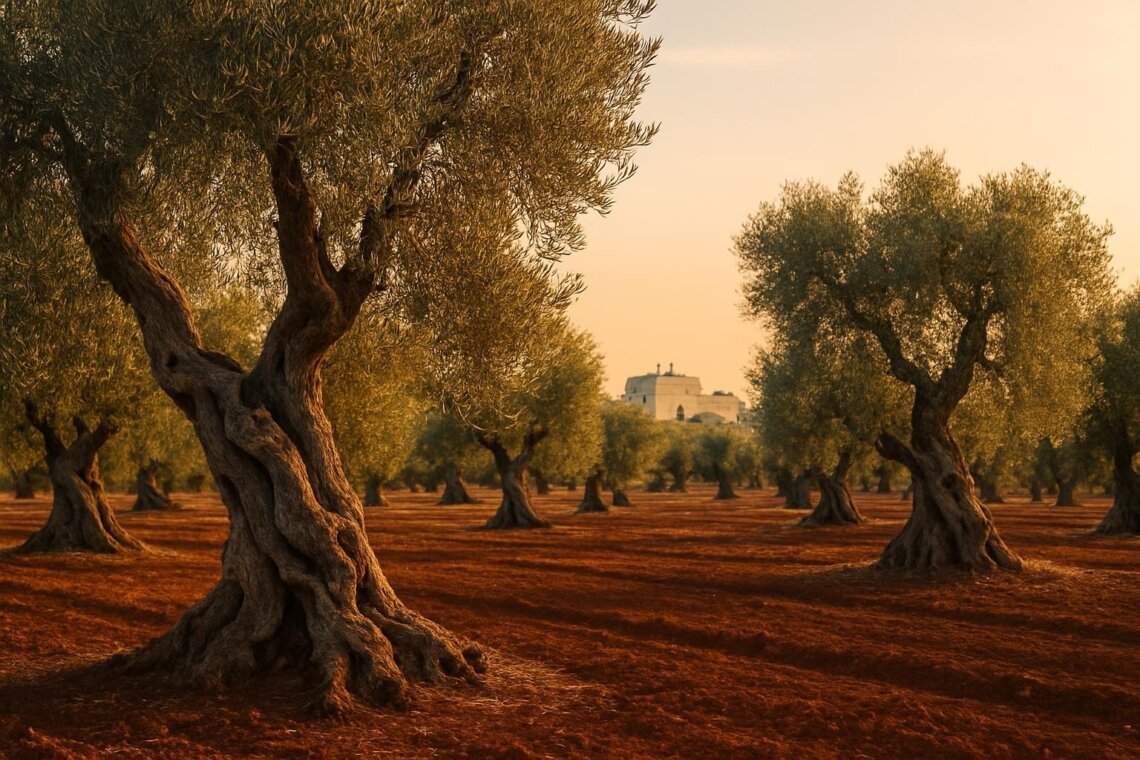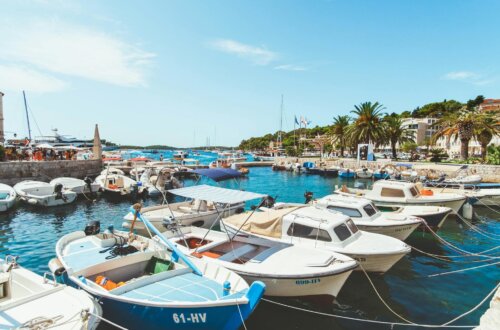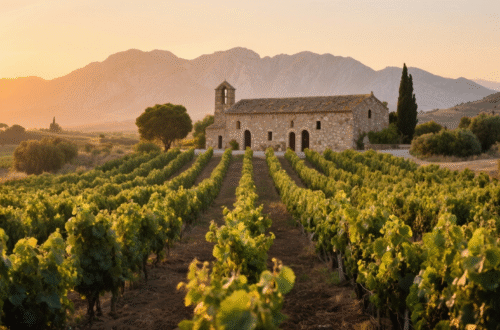
Olive Oil Tasting in Puglia – A Journey Through Italy’s Liquid Gold
Olive Oil Tasting in Puglia – A Journey Through Italy’s Liquid Gold
Introduction
Picture yourself standing among ancient olive groves that stretch toward the horizon, their silvery leaves shimmering under the intense southern Italian sun. The air carries hints of wild herbs and sea salt, while gnarled tree trunks—some over a thousand years old—twist skyward like living sculptures. This is Puglia, the heel of Italy’s boot, where olive oil isn’t just a condiment but a way of life, a liquid inheritance passed down through countless generations.
Puglia stands as the undisputed champion of Italian olive oil production, responsible for over 40% of the country’s entire output. This remarkable statistic translates to roughly 300,000 tons of olive oil annually, making this sun-drenched region an essential pilgrimage site for anyone serious about understanding Italy’s culinary soul. The global reputation of Puglian olive oil rests not merely on quantity but on exceptional quality, distinctive flavor profiles shaped by unique microclimates, and production methods that honor both ancient wisdom and modern innovation.
This guide will take you deep into Puglia’s olive oil culture, revealing centuries-old traditions that continue to shape modern production. You’ll learn exactly how to taste olive oil like a professional sommelier, discover the region’s most authentic tasting experiences, and gain practical insights for planning your own olive oil adventure. Whether you’re a food enthusiast, a traveler seeking authentic Italian experiences, or simply curious about what makes Puglian olive oil so extraordinary, this journey through Italy’s liquid gold will transform how you perceive this fundamental ingredient.

The Rich Tradition of Olive Oil in Puglia
The history of olive oil in Puglia reaches back over three millennia, with the ancient Greeks introducing systematic olive cultivation when they established colonies along these Mediterranean shores around the 8th century BCE. The Romans later expanded production dramatically, recognizing Puglia’s extraordinary potential for olive growing. Archaeological evidence reveals ancient olive presses and storage vessels throughout the region, testament to an industry that has remained vital for over 2,500 years.
What makes Puglia so perfectly suited for olive cultivation? The answer lies in an ideal convergence of geographical and climatic factors. The region enjoys over 300 days of sunshine annually, with hot, dry summers and mild winters that olive trees absolutely thrive in. The predominantly limestone-rich soil provides excellent drainage while retaining just enough moisture to sustain the trees during summer droughts. The proximity to both the Adriatic and Ionian seas moderates temperature extremes and brings moisture-laden breezes that contribute to the olives’ complex flavor development.
Puglia’s climate and soil composition create what agronomists call the “perfect terroir” for olive cultivation, allowing the region to produce oils with remarkable diversity in taste and aroma. From the robust, intensely peppery oils of Salento to the gentler, fruitier varieties from the Gargano peninsula, the Italian olive oil tradition finds its fullest expression in Puglia’s varied landscapes.
For Puglians, olive oil transcends its role as a cooking ingredient to become a cultural cornerstone. Families pass down olive groves through generations like precious heirlooms. The annual harvest remains a social event bringing together entire communities. In Puglian cuisine and culture, olive oil appears at every meal—drizzled generously over vegetables, used as a dipping sauce for rustic bread, and incorporated into nearly every traditional recipe. The Puglian phrase “olio a crudo” (raw oil) reflects the local preference for using high-quality extra virgin olive oil as a finishing touch rather than merely a cooking fat, allowing its full flavor complexity to shine through.
This deep integration of olive oil into daily life means that when you taste Puglian olive oil, you’re not simply sampling a product but connecting with millennia of agricultural wisdom, family traditions, and cultural identity preserved in every golden-green drop.

Why Puglia is the Best Destination for Olive Oil Tasting
When considering where to experience authentic Italian olive oil culture, Puglia stands alone as the premier destination for several compelling reasons. The diversity of olive varieties cultivated across the region is staggering, with each contributing distinct characteristics to the final oil.
The Coratina cultivar, for instance, produces intensely robust oils with high polyphenol content, resulting in that characteristic throat-catching pepperiness that signifies quality and freshness. Coratina oils typically deliver bold, assertive flavors with pronounced bitterness and notes of artichoke, tomato leaf, and fresh-cut grass. Meanwhile, the Ogliarola Barese variety creates more delicate, fruity oils with almond undertones and a gentler finish—perfect for those new to tasting high-quality olive oil. The Leccino cultivar offers a middle ground, producing elegant oils with sweet, fruity notes balanced by mild bitterness and a pleasant herbaceous quality.
These distinct flavor profiles—ranging from fruity and sweet to peppery and boldly bitter, with herbal and grassy undertones—mean that olive oil tasting tours in Puglia offer genuine diversity. You might taste three oils from the same region and encounter completely different sensory experiences, each reflecting specific olive varieties, harvest timing, and processing methods.
The best olive oil in Puglia isn’t confined to a single producer or area but rather represents a spectrum of exceptional quality across the region. From the UNESCO-recognized ancient olive groves near Ostuni, where some trees date back over 3,000 years, to modern, award-winning boutique producers in Salento, Puglian olive oil experiences offer something for every level of enthusiast.
The recognition by UNESCO of certain Puglian olive landscapes as cultural heritage sites underscores the region’s global significance. These protected areas preserve not just trees but entire agricultural ecosystems that have shaped Mediterranean civilization. Walking through these ancient groves while learning about olive oil production from passionate local producers creates an immersive experience that simply cannot be replicated elsewhere.
Furthermore, Puglia’s olive oil tourism infrastructure has matured beautifully in recent years. Many frantoi (olive mills) and masserie now offer sophisticated tasting experiences without losing their authentic, family-run character. This balance between accessibility and authenticity makes Puglia the ideal destination for both olive oil novices and connoisseurs seeking to deepen their understanding.
How to Taste Olive Oil Like a Pro
Learning to taste olive oil properly transforms it from a simple cooking ingredient into a complex sensory experience comparable to wine tasting. Professional olive oil sommeliers follow a specific methodology that anyone can learn, and understanding this process will dramatically enhance your appreciation during Puglian olive oil tastings.
The first step involves proper presentation. Pour approximately one tablespoon of olive oil into a small, tulip-shaped glass—ideally cobalt blue to prevent color from influencing your judgment. Cup the glass in your palm, using your hand’s warmth to gently heat the oil to around 28°C (82°F), which helps release volatile aromatic compounds. Cover the glass with your other hand to trap these aromas.
Next, bring the glass to your nose and inhale deeply, taking several short, sharp sniffs to fully appreciate the olive oil’s aromatic profile. What do you detect? Fresh, high-quality extra virgin olive oil should smell vibrant and alive, never musty, rancid, or flat. Common positive aromas include fresh-cut grass, green tomato, artichoke, green apple, herbs, almonds, and various fruity notes. Note whether the aroma seems intense or delicate, complex or straightforward.
Now comes the actual tasting. Take a small sip—about a teaspoon’s worth—and draw it across your entire palate, allowing it to coat your tongue. Then, here’s the distinctive part that surprises many first-timers: suck air through your teeth with the oil still in your mouth, making that characteristic slurping sound you’ll hear in any Puglian frantoio. This aerates the oil, spreading it across your palate and carrying its flavors to your retronasal passages, where much of our taste perception actually occurs.
As you experience the oil, note three key characteristics that define quality extra virgin olive oil: fruitiness (the fresh olive flavor), bitterness (particularly on the back of the tongue), and pungency (that peppery sensation in the throat that often triggers coughing). Contrary to what many assume, both bitterness and pungency are positive attributes indicating high polyphenol content and freshness. A strong throat-catch isn’t a defect but rather a sign of premium-quality oil rich in healthy compounds.
The differences between extra virgin, virgin, and refined oils become immediately apparent when tasted side by side. Extra virgin olive oil—the only grade worth purchasing for quality and health benefits—must meet strict chemical parameters and possess perfect flavor with no defects. Virgin olive oil has slight flavor imperfections, while refined olive oil has been chemically processed and lacks any distinctive character or health benefits.
Professional tasters also assess the oil’s balance: Do the fruity, bitter, and peppery elements complement each other harmoniously, or does one element dominate excessively? They note the persistence of flavors—how long does the taste linger after swallowing?
With practice during your olive oil tasting tours in Puglia, you’ll develop the ability to distinguish between different olive varieties, identify regional characteristics, and recognize quality markers that indicate exceptional production. This knowledge transforms every subsequent encounter with olive oil into a more meaningful, appreciative experience.

Top Olive Oil Tasting Experiences in Puglia
Puglia offers an impressive array of olive oil tasting experiences, from intimate family-run operations to larger cooperative mills, each providing unique insights into this ancient craft.
Traditional masserie—fortified farmhouses dating back centuries—offer perhaps the most atmospheric settings for olive oil tours. These historical estates, built with thick white walls to withstand both summer heat and historical invasions, now welcome visitors into their olive groves and production facilities. Masseria Brancati near Ostuni exemplifies this beautifully, with olive trees so ancient they seem to belong to another era entirely. Here, tastings often occur in cool stone rooms where families have produced oil for generations, with the current owners sharing stories passed down through their lineage while guiding you through sampling multiple varieties.
In Salento, the southernmost reaches of Puglia, boutique producers like Frantoio D’Amico represent the new generation of olive oil artisans—young, passionate producers combining traditional knowledge with modern quality control and marketing savvy. These smaller operations typically offer more personalized experiences, often with the owner or olive oil maker personally conducting tours and tastings. The advantage here lies in direct access to the producer’s expertise and passion, along with oils that represent highly limited, terroir-specific production.
Cooperative mills near Bari and Lecce provide a different perspective, showing how communities of small growers pool resources and knowledge to produce excellent oils while maintaining economic viability. These larger operations often offer the most comprehensive educational experiences, with guided tours explaining each step of modern olive oil production, from harvest through bottling.
The best olive oil tasting experiences in Puglia typically include several components: walking through the olive groves themselves, learning about different cultivars and growing practices; visiting the frantoio (mill) to understand extraction processes; and, of course, guided tastings of multiple oils. Many masserie and mills now offer hands-on workshops during harvest season, where visitors can participate in picking olives, witness the pressing process, and taste oil just hours after production—an unforgettable experience that connects you viscerally to the entire production cycle.
When selecting olive oil tours in Puglia, consider what type of experience appeals most to you. History enthusiasts might prioritize ancient masserie with centuries-old groves. Food lovers might prefer experiences that include cooking demonstrations or meals featuring olive oil prominently. Those interested in agricultural techniques might choose tours emphasizing organic or innovative production methods.
Pairing Olive Oil with Food in Puglia
Understanding how to pair different olive oils with food represents an essential dimension of Puglian culinary culture. The region’s traditional dishes showcase olive oil’s versatility, demonstrating how selecting the right oil can elevate a dish from good to extraordinary.
Robust, peppery oils from Coratina olives pair magnificently with hearty dishes that can stand up to their bold character. Think of rich legume soups, grilled meats, or aged cheeses—foods with sufficient flavor intensity to complement rather than be overwhelmed by the oil’s assertive personality. These oils also work beautifully with bitter greens like cicoria (wild chicory), a Puglian staple, where the oil’s pungency harmonizes with the vegetable’s natural bitterness.
Gentler, fruitier oils suit delicate preparations: seafood, fresh vegetables, and lighter dishes where you want the oil to enhance without dominating. A plate of raw seafood—perhaps those incredible sea urchins from the Salento coast—benefits from a drizzle of sweet, mild olive oil that adds richness without masking the ocean’s delicate flavors.
Classic Puglian cuisine provides perfect examples of thoughtful olive oil pairing. Orecchiette alle cime di rapa (ear-shaped pasta with turnip greens) traditionally finishes with a generous pour of robust local oil, its peppery notes cutting through the dish’s richness. Friselle—twice-baked bread discs—are softened with water then topped with tomatoes, oregano, and olive oil, where a fruity, aromatic oil brings the simple ingredients together. Focaccia barese, dimpled with tomatoes and olives, depends entirely on high-quality olive oil both in the dough and drizzled on top for its characteristic flavor and texture.
The distinction between using olive oil as a cooking ingredient versus a finishing touch is crucial in Puglian cuisine. While locals certainly cook with olive oil, they reserve their finest extra virgin oils for “olio a crudo”—raw application after cooking. This practice preserves the oil’s delicate aromatics and beneficial compounds while delivering maximum flavor impact. That final drizzle of peppery green oil over a bowl of pasta or a plate of vegetables isn’t merely garnish but the dish’s crowning element, tying all flavors together while adding its own distinctive character.
During food pairing sessions in olive oil tasting experiences across Puglia, you’ll discover how dramatically the right oil can transform even the simplest foods. A piece of rustic bread with nothing but high-quality olive oil and a pinch of salt becomes a revelation, showcasing how exceptional ingredients require little embellishment.

Practical Tips for Visitors
Planning an olive oil tasting adventure in Puglia requires some practical considerations to ensure you get the most from your experience.
Timing matters significantly when visiting olive oil farms in Puglia. The harvest season, typically running from October through December, offers the most dynamic and educational experience. During these months, the groves buzz with activity, mills operate at full capacity, and you can witness—or even participate in—the entire production process. The excitement during harvest is palpable, and tasting oil pressed just hours earlier provides an incomparable experience. However, this busy period means booking well in advance becomes essential, as spaces fill quickly.
If you’re visiting outside harvest season, don’t despair. Many masserie and frantoi offer excellent olive oil tasting tours year-round, with the advantage of more personalized attention and less crowded conditions. Spring, when olive trees bloom with delicate white flowers, provides beautiful scenery, while summer offers the advantage of extended daylight hours and warm, pleasant weather.
Regarding bookings, practices vary across Puglia. Larger, more tourist-oriented operations typically require advance reservations, which you can often make online. Smaller, family-run producers might accept walk-ins, though calling ahead—even just the day before—is always advisable to ensure someone will be available to receive you. Many Puglians speak limited English, so having a translation app or a few Italian phrases ready proves helpful.
Understanding proper etiquette enhances your experience and supports local producers. At tastings, you’re generally expected to taste oils thoughtfully and ask questions, but there’s no obligation to purchase. That said, if you genuinely enjoy an oil, buying directly from the producer not only ensures authenticity but also supports these artisans who maintain this heritage craft. Most producers will happily ship within Italy, and many can arrange international shipping for larger purchases.
When purchasing authentic extra virgin olive oil, look for specific quality indicators: harvest date (not just production date), designation of origin, and single-estate rather than blended sources when possible. Authentic Puglian extra virgin olive oil often carries PDO (Protected Designation of Origin) or PGI (Protected Geographical Indication) certifications. The best extra virgin olive oil shops in Puglia will always allow you to taste before buying and can provide detailed information about each oil’s characteristics and origin.
Price serves as a useful quality indicator. Genuine extra virgin olive oil from reputable producers cannot be cheap—quality olives, careful harvesting, and proper processing simply cost money. If a price seems too good to be true, the oil likely doesn’t meet extra virgin standards or has been adulterated.
Finally, remember that olive oil is a fresh agricultural product with a limited shelf life. Use oils within twelve to eighteen months of harvest, store them in a cool, dark place away from heat and light, and seal them tightly after each use to preserve quality.
Where to Buy the Best Olive Oil in Puglia
Once you’ve discovered exceptional olive oil during your Puglian tastings, you’ll naturally want to bring some home. Knowing where and how to purchase ensures you get authentic, high-quality products.
The most reliable source remains buying directly at masserie and frantoi where you’ve tasted and toured. Direct purchases guarantee authenticity, support local producers, and often come with the producer’s personal recommendations and stories. Many estates offer their oils in various sizes, from small bottles perfect for gifts to larger tins for serious users. Don’t hesitate to ask for packaging suitable for travel—producers accustomed to visitors usually have sturdy boxes and protective materials available.
Local markets throughout Puglia offer another excellent option for buying olive oil, particularly in cities like Lecce, Ostuni, and Bari. These markets often feature vendors representing specific estates or cooperatives, allowing you to taste before purchasing. The advantage here is variety—you can sample oils from multiple producers in one location. However, exercise some caution: ensure you’re buying from established vendors rather than questionable stalls offering suspiciously cheap “extra virgin” oil of uncertain origin.
Specialty shops in larger Puglian towns curate selections of regional olive oils, often including rare, limited-production bottles you might not find elsewhere. These shops typically employ knowledgeable staff who can guide your selection based on your taste preferences and intended uses. The Lecce historic center, for instance, hosts several excellent gourmet shops specializing in local products, including outstanding olive oil selections.
For tourists concerned about transporting olive oil home, most producers can arrange export and shipping. Within the EU, this process is straightforward. For destinations outside Europe, including the United States, shipping becomes more complex and expensive due to regulations and transport costs, but it’s certainly possible for larger orders. Some travelers choose to pack bottles in checked luggage, wrapping them carefully in clothing for protection—most airlines permit this, though checking specific carrier policies beforehand prevents unpleasant surprises.
Many Puglian producers have established online shops, allowing you to order your favorite oils even after returning home. While international shipping adds cost, having authentic Puglian olive oil delivered to your door maintains that connection to your travels and ensures you’re consuming genuine articles rather than supermarket imitations.

Conclusion
Puglia’s olive oil culture represents far more than agricultural production—it embodies thousands of years of Mediterranean civilization, family heritage, and culinary artistry preserved in liquid form. The region’s extraordinary contribution of over 40% of Italy’s olive oil output, combined with its remarkable diversity of varieties and flavor profiles, confirms Puglia’s status as Italy’s essential olive oil destination.
From walking among ancient olive groves where trees have witnessed millennia of history to understanding the nuanced art of professional tasting, experiencing Puglian olive oil culture offers profound insights into what makes Italian food and culture so compelling. The opportunity to meet passionate producers, taste oils mere hours after pressing, and learn how generations of knowledge shape every bottle creates memories that extend far beyond the palate.
Whether you’re drawn by the history embedded in thousand-year-old olive trees, the sophisticated sensory experience of tasting distinctive oils, or simply the joy of discovering authentic Italian craftsmanship, olive oil tasting tours should claim a prominent place in your Puglia itinerary. These experiences connect you directly to the land, the people, and the traditions that make this southern Italian region so captivating.
As you plan your journey through Puglia, prioritize time for at least one comprehensive olive oil experience. The investment—both of time and modest cost—will reward you with knowledge, flavors, and stories you’ll carry long after your trip ends. You’ll return home not only with bottles of exceptional oil but with a transformed understanding of this fundamental ingredient that has shaped Mediterranean cuisine for millennia.
Start exploring olive oil tasting options in Puglia today, and prepare to discover why this sun-soaked region produces some of the world’s most extraordinary liquid gold. Your taste buds, your cooking, and your appreciation for Italian culture will never be the same.




